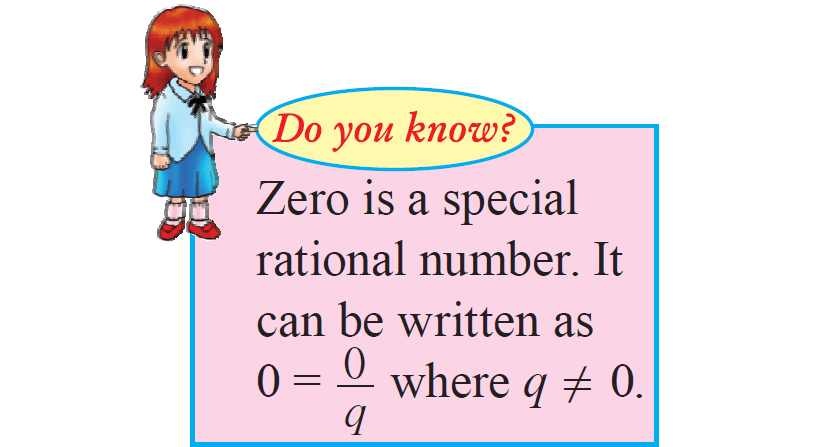PROPERTIES OF DIVISION OF RATIONAL NUMBERS
Subscribe to our ▶️ YouTube channel 🔴 for the latest videos, updates, and tips.
Students who practice problems on dividing rational numbers must be aware of the properties of dividing rational numbers.
There are some properties of division of rational numbers like closure, commutative and associative.
Closure Property
The collection of non-zero rational numbers is closed under division.
If a/b and c/d are two rational numbers, such that c/d ≠ 0,
then a/b ÷ c/d is always a rational number.
Example :
2/3 ÷ 1/3 = 2/3 x 3/1 = 2 is a rational number.
Commutative Property
Division of rational numbers is not commutative.
If a/b and c/d are two rational numbers,
then a/b ÷ c/d ≠ c/d ÷ a/b
Example :
2/3 ÷ 1/3 = 2/3 x 3/1 = 2
1/3 ÷ 2/3 = 1/3 x 3/2 = 1/2
Hence, 2/3 ÷ 1/3 ≠ 1/3 ÷ 2/3
Therefore, Commutative property is not true for division.
Associative Property
Division of rational numbers is not associative.
If a/b, c/d and e/f are any three rational numbers,
then a/b ÷ (c/d ÷ e/f) ≠ (a/b ÷ c/d) ÷ e/f
Example :
2/9 ÷ (4/9 ÷ 1/9) = 2/9 ÷ 4 = 1/18
(2/9 ÷ 4/9) ÷ 1/9 = 1/2 - 1/9 = 7/18
Hence, 2/9 ÷ (4/9 ÷ 1/9) ≠ (2/9 ÷ 4/9) ÷ 1/9
Therefore, Associative property is not true for division.

Subscribe to our ▶️ YouTube channel 🔴 for the latest videos, updates, and tips.
Kindly mail your feedback to v4formath@gmail.com
We always appreciate your feedback.
About Us | Contact Us | Privacy Policy
©All rights reserved. onlinemath4all.com

Recent Articles
-
Solving Exponential Equations
Feb 23, 26 10:06 AM
Solving Exponential Equations - Concept - Examples -
SAT Math Problems on Exponents and Radicals
Feb 21, 26 08:28 PM
SAT Math Problems on Exponents and Radicals -
SAT Math Problems on Angles
Feb 21, 26 08:20 PM
SAT Math Problems on Angles

